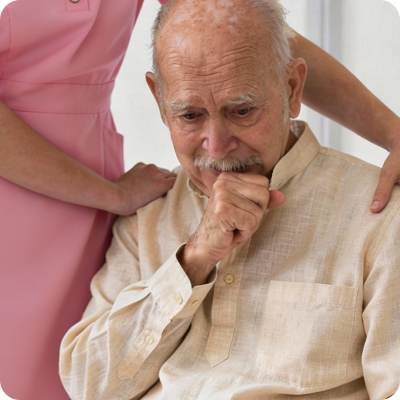Parkinson's disease is a neurodegenerative disorder that affects movement and can also cause changes in mood and behaviour. Some common personality changes that may occur in people with Parkinson's disease include depression, anxiety, apathy, and impulse control disorders such as compulsive gambling or shopping. These changes can be caused by the degeneration of dopamine-producing cells in the brain, which can affect mood regulation. Additionally, Parkinson's disease can also cause problems with memory and cognition.
There is a strong relationship between Parkinson's disease and depression. Clinical depression needs a formal diagnosis by a psychiatrist and is much more intense than ‘’low mood’’. Prolonged feeling of helplessness, hopelessness, demotivation to engage in any goal directed activity, decline in hygiene and sleep patterns are some of the prominent symptoms of clinical depression.
Studies have shown that up to 50% of individuals with Parkinson's disease experience depression, which is higher than the general population. Additionally, Parkinson's disease can also cause problems with memory and cognition, which can contribute to feelings of depression.
The motor symptoms of Parkinson's disease, such as tremors, stiffness, and difficulty with movement, can also lead to the person experiencing feelings of frustration and loss of independence, which can contribute to depression. The disease can cause social isolation, which can also contribute to depression. It is important to address depression in individuals with Parkinson's disease as it can have a negative impact on the management of Parkinson's and quality of life. Depression in Parkinson's disease can be challenging, but there are several strategies that may be helpful.
I am Head of Clinical Operations at Epoch Elder Care, with more than 15 years of nursing experience. At our assisted living homes, we have elderly residents who have Parkinson’s. As clinical professionals, we face these challenging behaviors often. Some of the strategies which we use at Epoch and find useful are given below. These can be implemented at home, based on the doctor’s advice:
An early diagnosis is imperative either by a psychiatrist or neuro-psychiatrist to understand the extent and seriousness of the condition.
-
Medications: Antidepressant medications, such as selective serotonin reuptake inhibitors (SSRIs), can be used to treat depression in Parkinson's disease (based on the advice of doctors).
-
Psycho-Therapy: Talking to a therapist or clinical psychologist can help individuals with Parkinson's cope with depression. Therapy can be done individually or together in a group, cognitive behavioral therapy is an example. Bear in mind that therapy works in the absence of dementia or cognitive impairment.
-
Exercise: Regular physical activity can help improve mood, increase energy, and reduce stress. Simple exercises such as stretching exercises in standing or sitting positions, walking, aerobic exercise, yoga, meditation etc. Physical therapy can help individuals with Parkinson's maintain and improve their physical function, mobility, and quality of life.
-
Occupational Therapy: Occupational therapy is an important part of the management of Parkinson's disease. Parkinson's is a neurological condition that affects movement, balance, and coordination, and can impact an individual's ability to perform everyday activities.
-
Engagement and Activities: Activities that the elders like doing should be given equal importance as much as medication. It is important to choose activities that can help the elderly feel motivated and reinforce a sense of purpose in their lives. This has to be largely driven from their personal histories and professional backgrounds. It may be difficult for some families to encourage their loved ones to be involved in the activities, and they may need the help of professionals.
-
Support Groups: Elderly joining a support group for people with Parkinson's disease can provide social support and help reduce feelings of isolation.
-
Good Sleep: It is very essential for improving quality of life. It depends on various factors, including the right room temperature, no noise and a good bedding arrangement.
-
Mindfulness: Mindfulness-based practices, such as meditation and yoga, can help individuals with Parkinson's disease manage stress and improve their mood. If none of these does work, they may need specialized care which will involve consultation from a psychiatrist at the earliest and counseling, as required. It is important for caregivers, friends, and family members of individuals with Parkinson's, and society at large, to be empathetic and understanding of the emotional struggles that may accompany the disease.
Sources: https://www.ncbi.nlm.nih.gov/pmc/articles/PMC4878671/ , https://www.parkinson.org/understanding-parkinsons/non-movement-symptoms/depression













